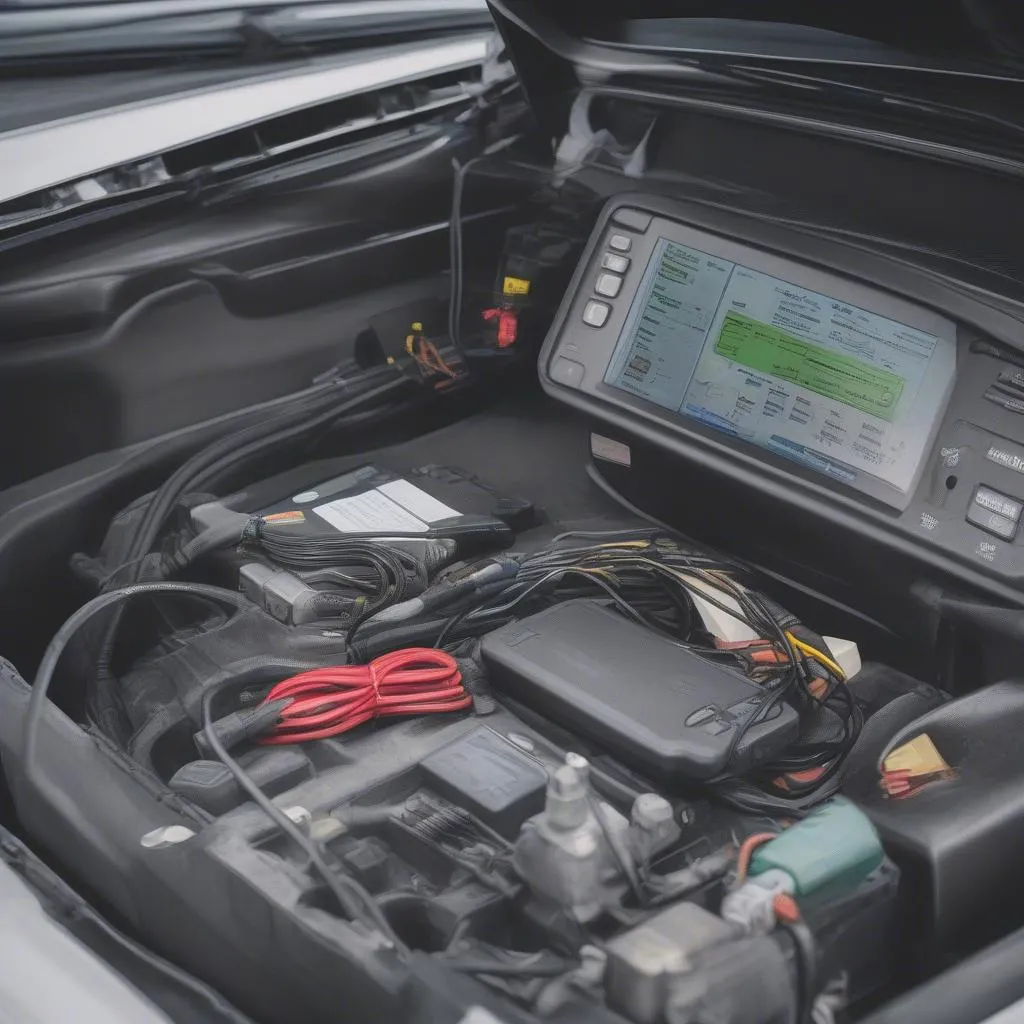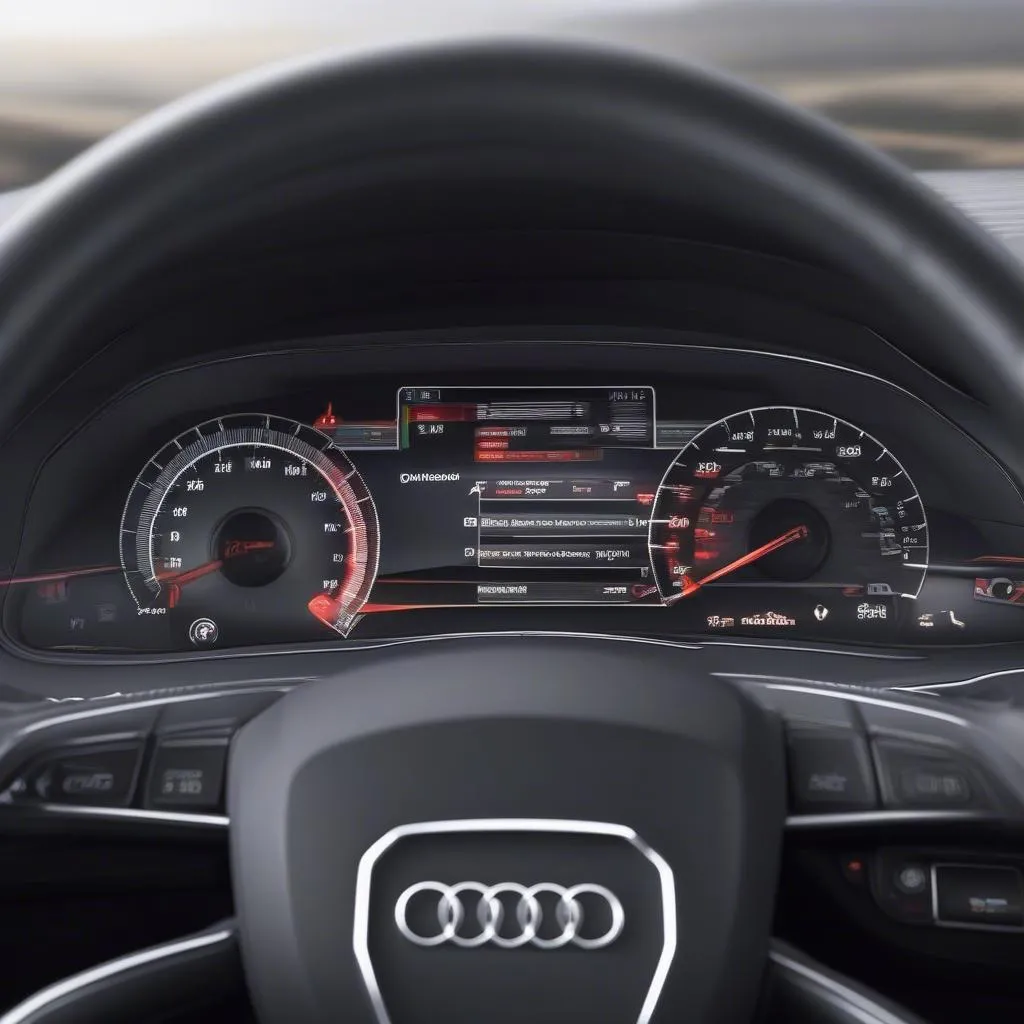It’s a frustrating situation: You’re a proud owner of a European luxury car, and it’s experiencing some electrical issues. You take it to your mechanic, and they tell you they need a “dealer scanner” to diagnose the problem. But what exactly is a dealer scanner, and why does it seem so necessary for European cars?
Dealer Scanner: The Importance of Advanced Diagnostics for European Vehicles
What is a Dealer Scanner?
A dealer scanner is a specialized tool used by technicians to access and diagnose the electronic systems of vehicles, often referred to as “OBD II” (On-Board Diagnostics) systems. It acts as a bridge between the technician and the car’s computer, providing critical information that helps pinpoint the root cause of a problem. Dealer scanners are often employed in conjunction with other diagnostic equipment and techniques to accurately diagnose complex electrical issues.
Why Are Dealer Scanners Crucial for European Cars?
- Sophisticated Electronics: European cars are renowned for their advanced technological features, from sophisticated engine management systems to intricate infotainment systems. This complexity necessitates specialized diagnostics tools to delve deeper into the car’s electronic architecture.
- Proprietary Software: European car manufacturers like Audi, BMW, Mercedes-Benz, Volkswagen, and Porsche often use proprietary software in their vehicles, requiring dedicated scanners designed to communicate with their unique systems. These scanners are not interchangeable with generic OBD II readers found in many aftermarket shops.
- Complex Diagnostic Protocols: European cars often employ complex diagnostic protocols, making it challenging to interpret fault codes without a dealer scanner. These protocols ensure the safe and efficient operation of the vehicle’s electronic systems.
How Dealer Scanners Work: Deciphering the Electronic Language of Your Car
Dealer scanners work by connecting to the car’s diagnostic port, which is typically located beneath the dashboard. Once connected, the scanner can read and interpret information from the car’s various electronic control units (ECUs). This data can include:
- Fault Codes: These are error messages generated by the car’s computer when it detects a problem, offering clues to the source of the issue.
- Live Data: This displays real-time information about the car’s performance, such as engine speed, fuel pressure, and temperature readings, providing valuable insights into the vehicle’s behavior.
- Component Activation: Dealer scanners can also activate specific components, allowing technicians to test functionality and troubleshoot issues.
 Dealer Scanner Connected to Car Diagnostic Port
Dealer Scanner Connected to Car Diagnostic Port
The Benefits of Using a Dealer Scanner for European Car Repair
- Accurate Diagnosis: Dealer scanners provide the most precise diagnostic information, ensuring that the correct repair is performed.
- Faster Repairs: By quickly identifying the root cause of a problem, a dealer scanner can streamline the repair process, saving time and money.
- Reduced Repair Costs: In some cases, a dealer scanner can help prevent unnecessary repairs by identifying a minor issue before it becomes more serious.
- Improved Safety: Accurate diagnostics ensure the safety of both the driver and other road users by identifying and resolving potentially dangerous issues.
Frequently Asked Questions:
1. Can I use a generic OBD II scanner on my European car?
While generic OBD II scanners can access basic data, they may not be able to read all the necessary information from a European car’s complex systems.
2. Where can I find a dealer scanner?
Authorized dealerships and specialized automotive repair shops equipped to work on European vehicles usually have access to dealer scanners.
3. Is it worth getting my own dealer scanner?
If you frequently work on your own European car, or you’re a professional mechanic specializing in European vehicles, investing in a dealer scanner might be worthwhile.
Case Study: Navigating a Real-World Scenario with a Dealer Scanner
Imagine a scenario where your Audi A4’s dashboard lights start flashing, and the car enters “limp-home” mode. You take it to a local mechanic, but their generic scanner cannot decipher the error codes. They recommend a dealer scanner for a more thorough diagnosis.
The dealer scanner reveals a fault code related to a malfunctioning oxygen sensor. By pinpointing the problem, the mechanic can replace the sensor, restoring your car to its normal functionality. This highlights the critical role a dealer scanner plays in accurately diagnosing and resolving complex automotive issues.
 Audi A4 Dashboard Lights Flashing
Audi A4 Dashboard Lights Flashing
Conclusion
Using a dealer scanner is often essential when diagnosing electrical issues in European cars due to their advanced technology and proprietary software. This specialized tool helps mechanics access crucial data, identify the root cause of problems, and ensure the most efficient and accurate repairs.
Need help with finding the right diagnostics tools or have questions about specific electrical issues in your European car? Contact us at +84767531508 for expert assistance 24/7.
